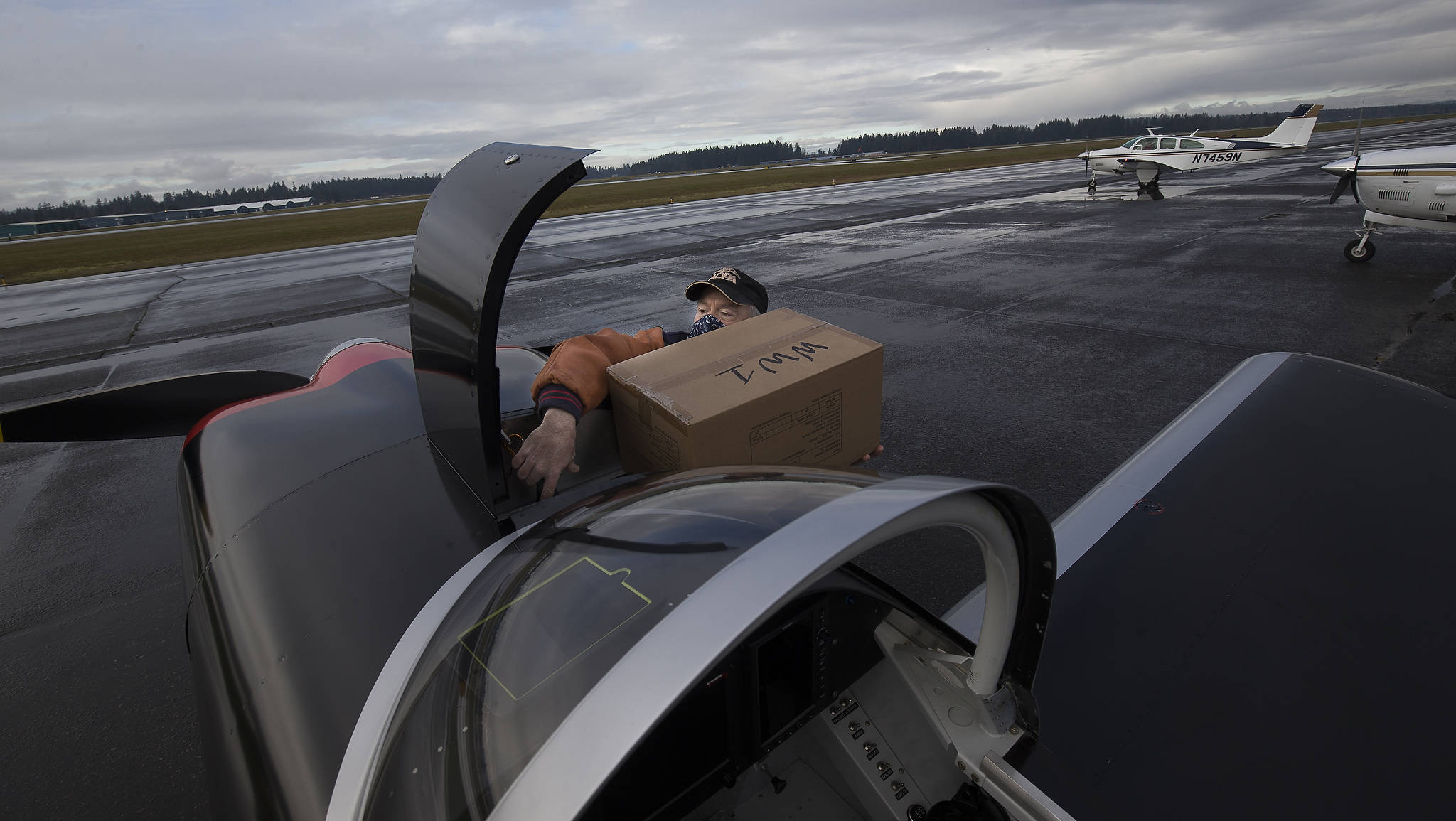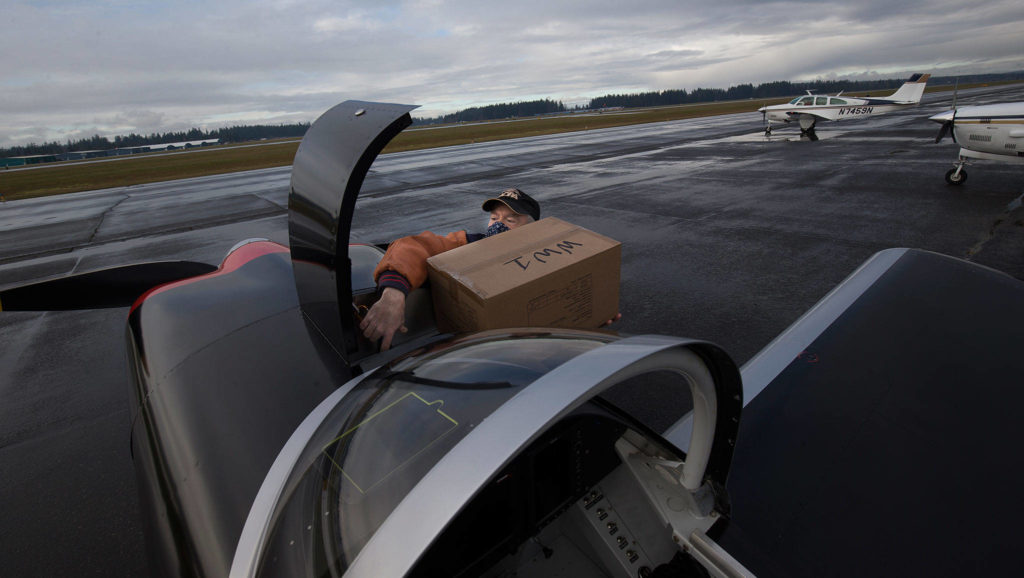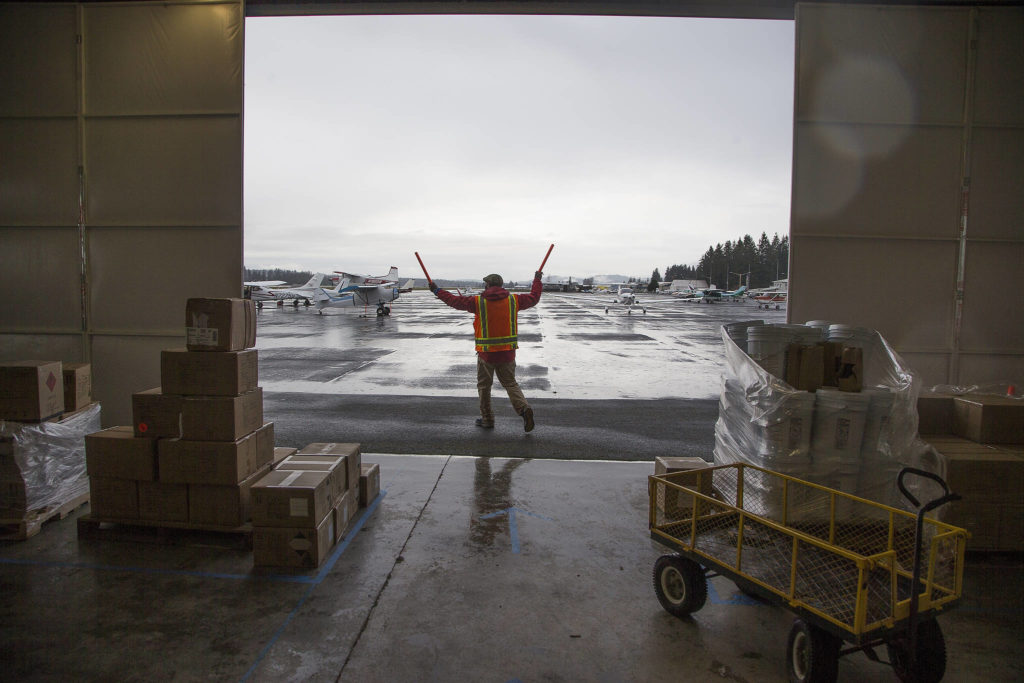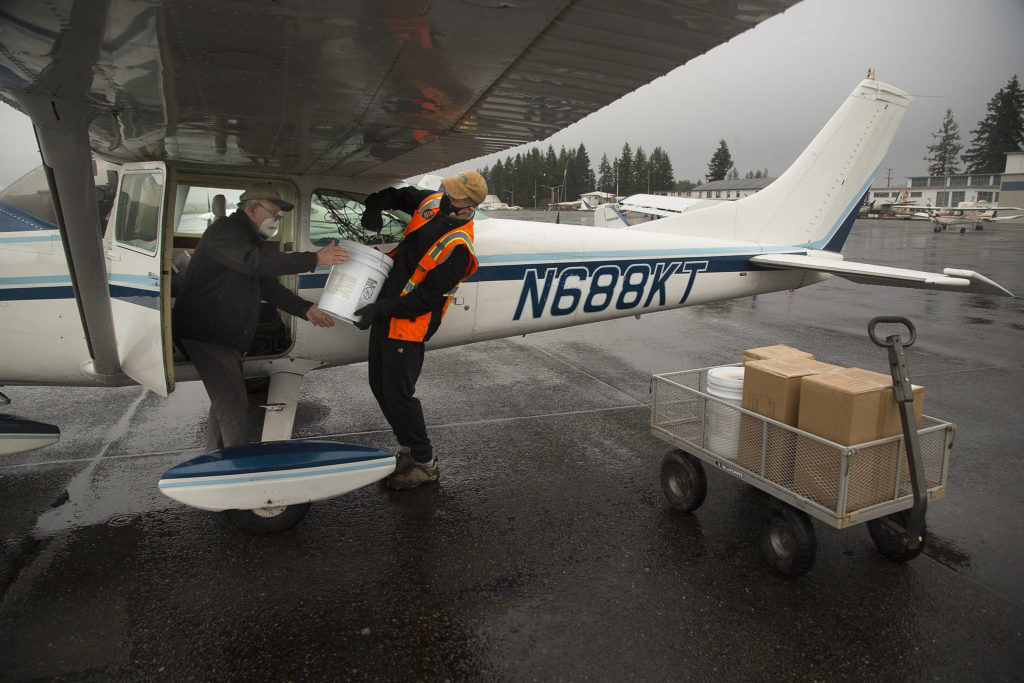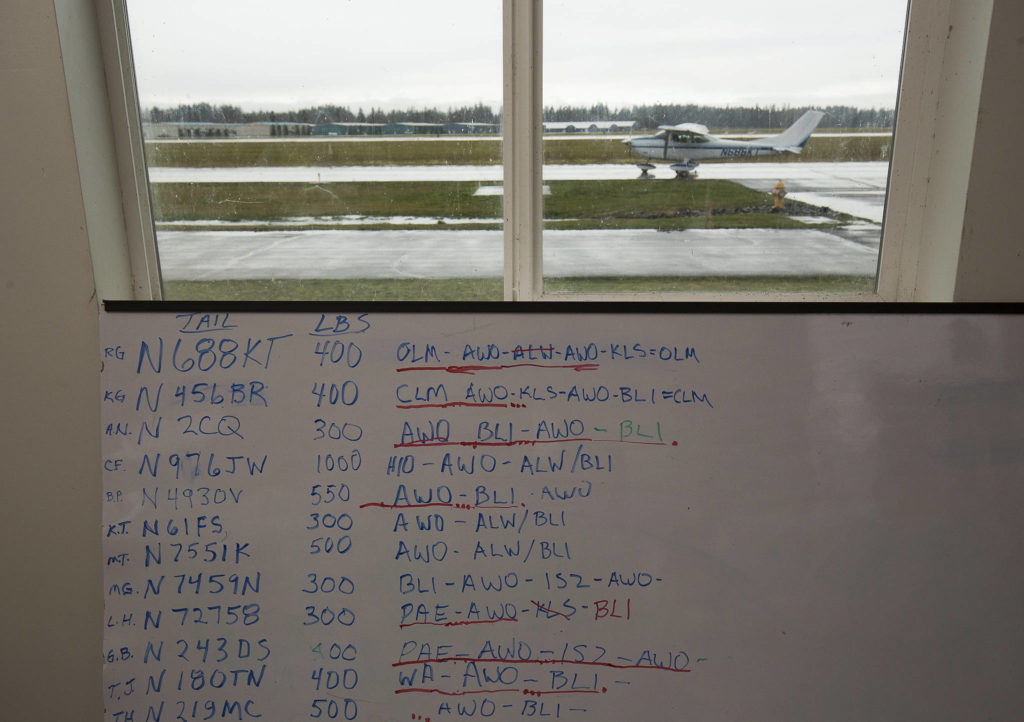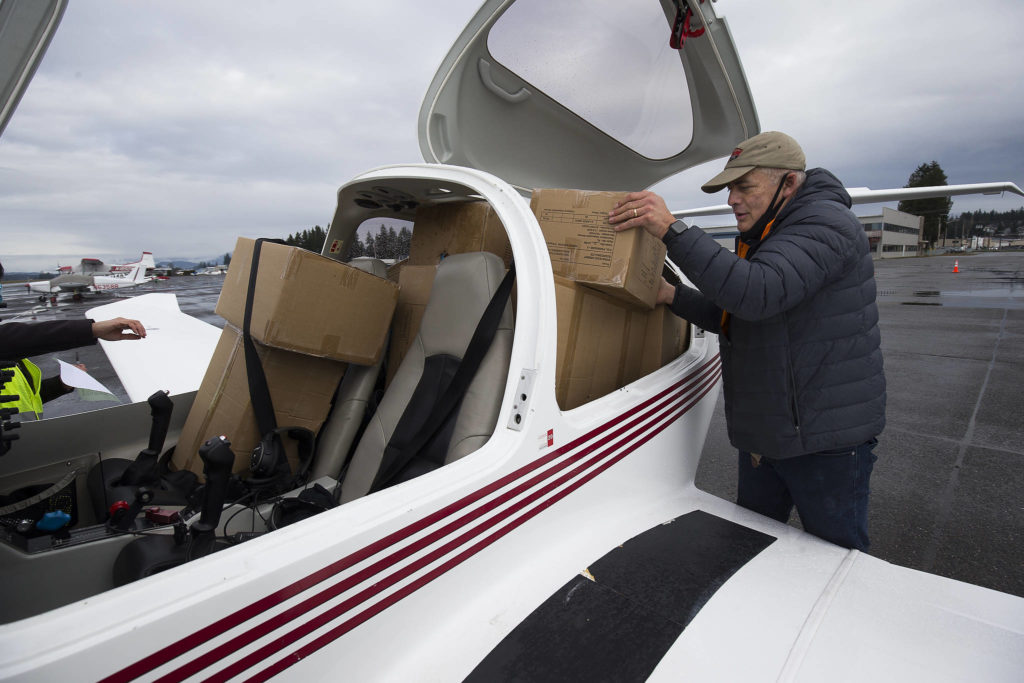ARLINGTON — From a runway at Arlington Municipal Airport, planes took to the sky this weekend stocked with PPE and fresh food bound for communities devastated by the COVID-19 pandemic.
More than 35,000 pounds of necessities were flown by volunteers to Native American tribes in all corners of Washington. It’s a unique partnership between a tribal support network and about 100 local pilots, delivering resources while also training for an even worse crisis.
The four-day operation beginning Thursday combined the resources of the National Tribal Emergency Management Council (NTEMC), Woodinville non-profit food provider Farmer Frog and the Northwest Region Emergency Volunteer Air Corps (EVAC), a group of pilots prepping for natural disaster.
A hangar at the airport served as base camp for the ambitious exercise. The hum of arriving and departing airplanes was the steady soundtrack.
Allotments of PPE — an oft-used acronym in the age of COVID-19 that stands for personal protective equipment — include countless masks, gloves, sanitizers and soaps. The tribal contributions and supplies of food donated by Farmer Frog were pushed onto the tarmac and loaded onto the small, private propeller planes.
“There are tribes in Washington state that are really hurting right now,” said Szabolcs Pasztor, director of administration for Farmer Frog. “We saw this opportunity to work together and are now moving PPE out to those tribes in big volumes.”
Since May, collaboration between Farmer Frog and NTEMC has delivered more than 35 million pounds of food to tribes in 34 states. Pasztor said the nonprofit sends food out like mad from its Woodinville facility, but there is still a gap in getting resources to Black, Indigenous and other communities of people of color.
“This isn’t disappearing anytime soon, the communities are still going to be in need,” she said. “We are serving some people who’ve been stuck inside their home since February, they haven’t left and there are whole communities that are like that.”
With the help of EVAC pilots, supplies were flown to Kelso, Walla Walla, Darrington, Bellingham, Port Angeles or some other airport in Washington to reach one of the 35 tribal nations receiving supplies. The air assistance allows easier access to the state’s most rural tribes.
But there is also second reason for the aerial operation.
Seemingly behind the scenes, another activity is underway. One with ham radios and flight schedules mapped out on whiteboards. A pursuit of preparedness for a catastrophe like none we’ve seen. As in “The Big One.”
“We know that Cascadia Subduction Zone earthquake is going to happen, it’s just a matter of when,” said Lynda Zambrano, executive director of NTEMC. “Every disaster should be a planned event. Even with this disaster (COVID-19), we can use this to plan for the next event, if we do it right.”
In this view, Zambrano found kinship with Sky Terry, director of emergency response EVAC in the Northwest.
For more than a decade, Terry has focused on organizing volunteer pilots who would serve as a response team in the aftermath of the great earthquake forecast for our region. He imagines highways and infrastructure in ruins, leaving the air as the ideal means for assistance.
Terry and the other pilots in local Disaster Airlift Response Teams conduct drills twice a year to prepare. An opportunity to deliver life-saving supplies to Washington’s most remote tribes is better than any rehearsal.
“What’s being played out in real time is the totality of what I envisioned,” Terry said on Friday.
Zambrano and Terry worked in unison to command the weekend’s supply deliveries. Pilots were intentionally directed to smaller airports as test runs for when those communities could need help during an even larger disaster. It was another step in pursuit of preparation, Zambrano said.
This was the fourth weekend of supply runs out of the Arlington airport, with an estimated 50,000 pounds of PPE delivered in total.
The pilots are flying their own planes and footing the gas bill themselves, but that didn’t seem to be top of mind.
Father and son co-pilots Reed and Todd Hamsen said a representative from the Nooksack Tribe was delighted to receive supplies during their stop in Bellingham. The men from Bainbridge Island said it felt like a necessity to support the tribes in fighting the pandemic.
“We all need to work together to reduce the impact COVID has,” Todd Hamsen said. “Whatever we can do to expedite and move things, I feel like it is well worth donating back to the community.”
Ian Davis-Leonard: 425-339-3448; idavisleonard@heraldnet.com; Twitter: @IanDavisLeonard.
Talk to us
> Give us your news tips.
> Send us a letter to the editor.
> More Herald contact information.
